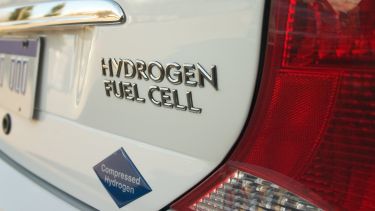The commonly-used, platinum catalyst is prohibitively expensive and accounts for about 40% of the total cost of a fuel cell system. Replacing it with high-performance non-precious catalysts will render clean fuel cell technology much more competitive when compared to high-emission conventional power conversion technologies used in the automotive industry and at power plants.
Researchers in the Energy Institute at the University of Sheffield have joined forces with Kyushu University in Japan, through a collaborative travel research grant sponsored by the Royal Society and Japanese Society for the Promotion of Science (JSPS). They are developing carbon foam based catalysts which have demonstrated comparable performance to that of the platinum catalyst.
Work is currently underway to improve the lifetime of the developed carbon based catalyst which will help to make the fuel cell system a more viable alternative to platinum and promote the use of zero-emissions technology.
So far, researchers have tested various iron-containing materials to identify the reason behind the chemical activity of the developed catalysts, shedding more light on how the lifetime of the catalyst could be improved.
Dr Mohammed Ismail, the UK investigator of the project, said “Platinum catalysts, which are conventionally used in the hydrogen fuel cells, are the main cost driver of the fuel cell system. Therefore, successfully replacing it with extremely cheap catalysts will be a game changer as it will make the fuel cell technology much more commercially viable.”
Researchers from the Energy Institute are collaborating with the fuel cell and hydrogen research group at Kyushu University who are world-leading experts in synthesising and testing non-precious catalysts for hydrogen fuel cells.
The research will pave the way for widespread deployment of the clean fuel cell technology into the fuel cell electric vehicles and power plants, thus reducing CO2 emissions into the atmosphere.

